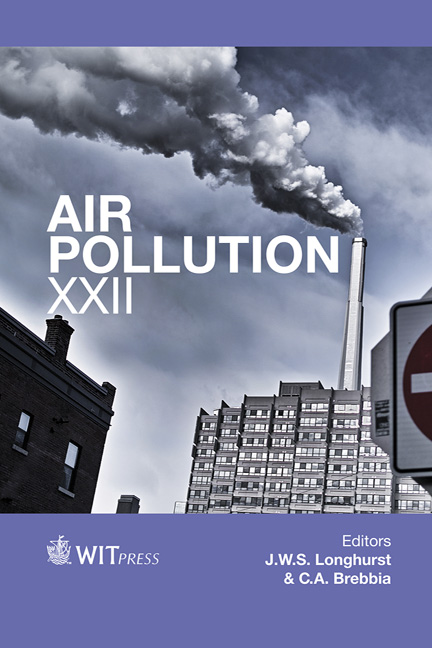Concentrations Of PM2.5 In The Northwest Of Mexico City: 2004–2006 And 2008–2012
Price
Free (open access)
Transaction
Volume
183
Pages
8
Page Range
157 - 164
Published
2014
Size
709 kb
Paper DOI
10.2495/AIR140131
Copyright
WIT Press
Author(s)
Y. I. Falcon, L. Cortes, E. Martinez & D. Hernandez
Abstract
The Metropolitan Zone of Mexico City with an approximate surface area of 7854 square kilometers, is located in the Valley of Mexico whose boundaries are marked by four mountainous masses that form a basin with hollows and plains. There are more than 29 million people and an approximate of 9 million registered automobiles in the Metropolitan Area. Furthermore, Mexico City is the principal industrial center in the Country with more than 46,000 industries, among them we find cement, metal processing and chemical plants. Sampling of respirable particles PM2.5 was done using an Airmetrics Minivol Portable Sampler and the mass of particles was determined gravimetrically. Particles samples were collected during 24 hours from Monday to Tuesday and from Thursday to Friday. The data of particles concentrations were correlated with the wind velocity and relative humidity. The particles were collected during the years 2004 to 2006 and 2008 to 2012 excepting the year 2007, obtaining a total of 323 samples. Sampling showed that PM2.5 concentration has been increasing through the years of monitoring. Since 2011, PM2.5 concentration has registered a considerable rise when compared with previous years, possibly due to the increase in the vehicle fleet in the Metropolitan Zone of Mexico City, according to data obtained by INEGI. The relative humidity remained at a range from 40 to 80%, during all the years of the sampling campaign, by comparing relative humidity against PM2.5 concentration, it was observed that the higher the relative humidity, the lower the PM2.5 concentration.
Keywords
air pollution, respirable particles.





